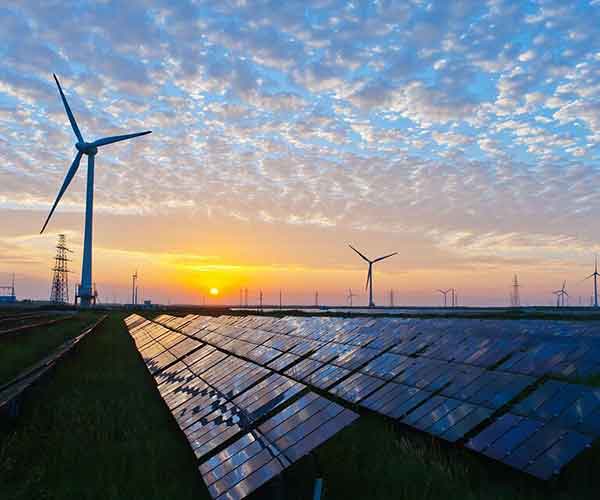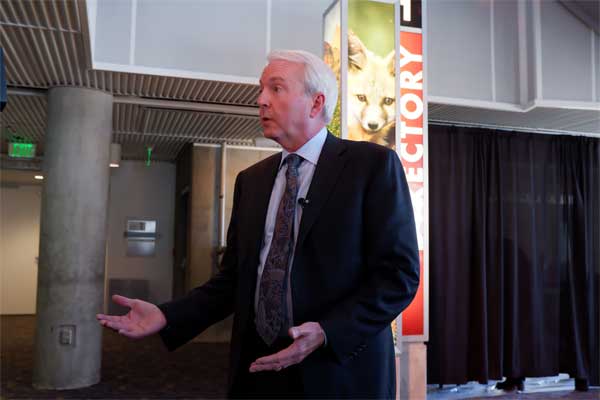One of the largest U.S. utilities (largest Colorado) has unveiled plans to accelerate its carbon reduction goals.
Xcel Energy made the announcement Tuesday in Denver saying that sharply lower costs for renewable energy and investments in new technologies will allow it to deliver all carbon-free electricity to customers by 2050.
The company is headquartered in Minneapolis and has customers in Colorado, Michigan, Minnesota, New Mexico, North Dakota, South Dakota, Texas, and Wisconsin.
The industry-first initiative comes in direct response to climate change, said Ben Fowke, CEO of the Minneapolis-based company. He emphasized that affordability and reliability are key in achieving the goals.
“This risk of climate change isn’t going away and we want to be the company that does something about it and hopefully inspire others to do something about it too,” Fowke told reporters while in Colorado to announce the major initiative.
Xcel has been a leader on clean energy for a while. According to the company, it has reduced its carbon emissions by 35 percent since 2005.
Earlier this year, it announced plans to, by 2030, reduce carbon emissions 60 percent (from 2005 levels), increase the level of renewable energy in its fleet to 55 percent, and shut down 50 percent of its coal capacity — in the state of Colorado.

The most fundamental changes of high levels of wind and solar relate to the timing of when electricity is cheap or expensive and the degree of regularity in those patterns /Windpower Engineering
Renewable energy’s continued drop in prices is a contributing factor to this shift in the company’s policies towards clean energy.
Wind and solar plants paired with storage are bidding in cheaper than the ongoing operating costs of existing coal plants. Also, Xcel’s customers — particularly cities — are demanding it.
“When your customers are asking for this over and over,” Fowke said, “you really do listen. Boulder, the city of Denver, Breckenridge … Pueblo, they’re considered or they have already decided that they want to pursue 100 percent renewable.”
The company’s ambitions stand in stark contrast to the U.S. government’s pro-coal agenda under Trump, because they will likely further erode flagging U.S. demand for coal.
The U.S. Energy Information Administration said that U.S. coal demand is projected to hit a 39-year low in 2018, continuing a downward trend fueled by cheap natural gas and increasingly competitive wind and solar energy.
Trump has vowed to revive the fossil fuel industries by rolling back Obama-era environmental protections that he argues kill jobs and provide no tangible benefits.
The decision to go carbon-free by 2050 is not a selfless act on Xcel’s part — it sees which way the wind is blowing and is focused on providing returns for shareholders. And the announcement leaves many, many details unspecified, including plans to shut down fossil fuel plants and transition plans for affected communities.
Nonetheless, it shows that incentives are beginning to align in a hopeful way. It is the smart move, politically and economically, for Xcel to set a course for zero carbon. That would have been unthinkable 10 or even five years ago.















Comments